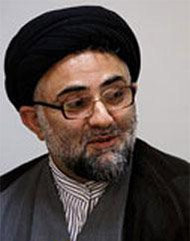Rationalization of Oral History Books (part I)
Reliable sources enrich Rationalization
Akram Dashtban
Translated by: Fazel Shirzad
2018-5-22
Note: Following report is based on an invitation in which history experts are asked questions about oral history. In this regard, one of experts, as his perspective, has answered to one of questions titled "The amount of rationalization and appendix in oral history books". We'll read these comments as follows.
■
Rationalization, in oral history, provides a greater sense of comprehension of text for contemporary readers and even next generations. "What does Rationalization mean?" It is a question that Hojatoleslam Seyyed Vali Hashemi, author of Sacred Defense's books and deputy of Mazandaran province's Art Center, said: Rationalization of oral history includes of documentary materials that a complier provides them by using reliable sources about individuals, places, concepts, and terms and with the aim of eliminating the ambiguity of the text, and transfer more information to reader.

He explained about the extent of the rationalization in the text: The extent of rationalization should convince the complier of work.
This extent may be two lines or half, but it should not be larger than a quarter of a page or half a page. In fact, the rationalization should not be so large that it affects the structure of the work. Rationalization can be included in books in four forms: first, using of reference in text. Second, using of footnote. Third, it can be used at the end of chapter and Fourth, using of appendix.
The author of book "Hajj Imran" further states that rationalization in the work is one advantage for a book and author, and added: rationalization clarifies two points; firstly, the complier is a researcher, and secondly, s/he considers readers’ comprehension.
He said that if interviewer had more proficiency and skill over subject and the manner of interviewing, he would lower the necessity of paying attention to rationalization. I disagree with this idea, because narrator may speak about a military district, but there is no information about its geographical location; therefore, complier is responsible for rationalization in footnote on military districts or terms. Also, it is possible, a person does not remember memories well; here, complier clarifies subject through Reliable maps and resources.
Hashemi went on to say about oral rationalization practices in oral history books, and said: "rationalization initially introduces places, individuals, and concepts." Secondly, it introduces the issue correctly.Thirdly, shows that author's work is based on research and does not involve the transcription of an interview, and ultimately adds to the scientific power of a book and the richness of materials.
He went on to explain the issues that threaten rationalization: "It should be noted that if rationalization is more than text, it may cause narrator to be dissatisfied or subject to be lost. It may also be confusing for someone who rationalize, or cause him/her to use Reliable sources or sites. In rationalization, there may be a nominal similarity that complier is not able named it well, or source which introduced by complier is unknown.
Hashemi added: To resolve problems in the field of resources, complier should use of reference books and if s/he uses a site as a reference, it should be mentioned in footnote completely. Of course, in the field of sacred defense, you should refer to valid sites in related area or official sites of army and Sepah[1].
■
Iranian oral history website questions experts about oral history, and publish responses to readers. Total responses will have remarkable results. If you have any questions, please feel free to submit it via this page to read comments from experts of oral history!
[1] Islamic Revolutionary Guard Corps
Number of Visits: 4552








The latest
Memoirs of Hujjat al-Islam Reza Motalebi
Hujjat al-Islam Reza Motalebi is a cleric from Isfahan. Before the revolution, he was the imam of the Fallah Mosque – which was later renamed Abuzar Mosque. By his presence and efforts, Abuzar Mosque soon became a base for supporters of the Imam and the revolution. After the victory of the revolution, he played a role in uniting forces and maintaining political vitality in southwest Tehran.The Necessity of Receiving Feedback in Oral History
Whenever we engage in a task, we naturally seek ways to evaluate our performance — to correct shortcomings and enhance strengths. Such refinement is only possible through the feedback we receive from others. Consider, for instance, a basketball player whose shots are consistently accurate; should he begin shooting blindfolded, his success rate would rapidly decline, as he would be deprived of essential feedback from each attempt.Sir Saeed
The book “Sir Saeed” is a documentary [narrative] of the life of martyr Seyyed Mohammad Saeed Jafari, written by Mohammad Mehdi Hemmati and published by Rahiyar Publications. In March 2024, this book was recognized as one of the selected documentary biographies in the 21st edition of the Sacred Defense Book of the Year Award. The following text is a review on the mentioned book.Morteza Tavakoli Narrates Student Activities
I am from Isfahan, born in 1336 (1957). I entered Mashhad University with a bag of fiery feelings and a desire for rights and freedom. Less than three months into the academic year, I was arrested in Azar 1355 (November 1976), or perhaps in 1354 (1975). I was detained for about 35 days. The reason for my arrest was that we gathered like-minded students in the Faculty of Literature on 16th of Azar ...

